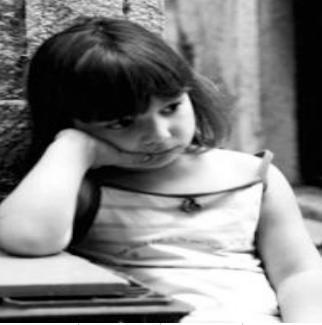Depression in children is a complex issue, since unlike adults, children often do not put their feelings into words, or explain the reasons that lead them to be this way. But children can also suffer from depression, it manifests itself in various ways, ranging from emotional changes to changes in the way they act and think. The child is sad, cries about anything, shows a lack of interest in activities that he used to like, does not sleep well, is often irritable, disqualifies himself, saying that he is useless, that he is stupid. These symptoms are recurring and last for a long period of time. If your child has these characteristics, here are some guidelines to help you treat a child with childhood depression.
The child is sad, cries about anything, shows a lack of interest in activities that he used to like, does not sleep well, is often irritable, disqualifies himself, saying that he is useless, that he is stupid. These symptoms are recurring and last for a long period of time. If your child has these characteristics, here are some guidelines to help you treat a child with childhood depression.
Steps to follow:
- Make an appointment with a specialist doctor. It will be the specialist doctor who establishes a diagnosis about what happens to your child. In some cases, depending on the intensity of the depression, you can propose some medications to help the child come out of that depressed state.
- Show your support and support. It is important that the child feel accompanied and loved. You have to be attentive to the progress you have and possible relapses, to be able to act early. Try to convey calm and affection. The children who suffer from depression have very low self-esteem, so it is important to encourage him and show affection
- Speak at school. It is important to inform them of the situation so that they can keep you informed about their progress and relapses. Children with depression tend to isolate themselves and not maintain contact with their peers, in addition to having difficulties in school. It will be the teacher who will give you a more adequate perspective of this aspect of your child’s life.
- Try to encourage recreational activities. Children with depression tend to abandon those activities that previously gave them pleasure, which is why it is positive to try to encourage them to resume them. They can go out one afternoon to the park, to the movies, to the beach, it would be even better if these activities could be shared with all members of the family.
- Try to spend more time with him. Show him dedication, try to play with him, help him to carry out the tasks, ask him to help you do things with you, such as if you are cooking ask him to help you cook, if you are painting, to help you paint.
- Try to maintain a routine for the child will benefit him in his childhood depression. One of the main characteristics of depression is emotional instability, which is why establishing a routine will make your child feel more stable, content. Avoid sudden changes of plans and in the event that an activity is carried out that escapes the routine, notify him in advance so that he is prepared. Also try to keep your sleeping and eating schedules on schedule.
This article is merely informative, we do not have the power to prescribe any medical treatment or make any type of diagnosis. We invite you to see a doctor in the case of presenting any type of condition or discomfort.
Tips
- In the event that the doctor considers the use of medications necessary, these should be applied in the dose recommended by the doctor. If you notice that it has negative effects on the child, check again but do not change the dose yourself.




